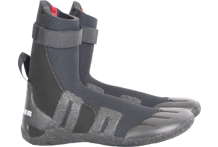Our BKSA school is called Camber Kitesurfing, our address is;
123 Lydd Rd, Camber TN317RS, we are a 2 minute walk from the kitesurfing teaching zone.
Camber Kitesurfing founder, Anthony was one of the first kitesurfers on Camber Beach back in 2000. Since then and after working and managing at several kite schools in Sussex, Isle of Wight, Tarifa, Melbourne and Cairns, Camber Kitesurfing was born. Knowing the whole evolution of kitesurfing and having been immersed in the whole kitesurfing scene makes us proud to give kitesurfing lessons of the highest quality to our clients.
Our USP remains to be incredible customer service, great equipment and an outdoor hot shower when you come off the water. We also have a hose to wash down your equipment.
What3words location - Pop in! https://w3w.co/dustbin.sprinkler.thuds

Not only do we teach kitesurfing, we do power kite, kite mountain boarding and kite buggy lessons. We also hire kites and boards to beginners who have reached a self sufficient skill level.

We also provide package deals for larger corporate groups, stag and hen parties and birthdays, we can include accommodation, food and drink, bands.... whatever you need to make your trip memorable... just ask!
All our intructors are BKSA (British Kite Surfing Association) qualified, some also hold IKO (international Kitesurfing Organisation) qualifications.
We sell equipment from Ozone, Crazyfly, Airush, Dakine and Alder to name a few, give us a call and we will do you the best deal.
OPEN 9am-7pm 7 days - Pre booking required
CAMBER KITESURFING - LESSONS - EQUIPMENT - HIRE
07960 587 482

Kitesurfing is one of Britain’s fastest growing watersports, an estimated 47,000 people participating in 2012 has risen to 1.5 million in 2024. A British Marine Watersports survey reported equal participation between men and women. It has been featured in several high-profile, multi-class regattas, and there will be formula kite (kite foiling racing) included in the 2024 Paris Olympics.
Kiteboarding originated from daredevils using kites with skis, surfboards and wakeboards in the late 1990's and evolved in to a true sport once the inflatable kite was patented by the Legaignoux brothers. The original LEI (leading edge inflatable) was named the Wipika and most innovations since are a derivative of that design.
Basically, kitesurfing or kiteboarding involves standing on a small surfboard and being pulled along by what looks like a miniature parachute, which is controlled by a system of strings. Practitioners tend to specialise, either opting for racing or “freestyle”, which involves performing a complicated series of tricks.
Technically, kitesurfing is classified as an extreme sport. But according to Pete Shaw of the British Kitesports Association, it can be “as extreme as you like”.
“You can go out with a big kite in high winds and jump 40 feet in the air,” he says. “Or you can go out on a lighter wind day with a smaller kite, and essentially go sailing. Either way, it’s really good fun.”
This accessibility has been at the heart of the sport’s burgeoning popularity.
The equipment is easier to transport than other extreme sports. It can fit in the boot of a hatchback car, costs vary weather you go new or used, getting fully kitted out can be quite an outlay, but if you use the equipment regularly it is not as expensive as a ski holiday for example. You don’t need a slipway to launch, as you would with a sailing craft. And you don’t need as much wind as you do with sailing and windsurfing. You also don't have to travel abroad to practice kitesurfing, the UK is blessed with many suitable beaches.
So broad is the sport’s appeal that it has even gained a reputation as “the new golf”, with CEOs such as Richard Branson and the founders of Google, Larry Page and Sergey Brin, counted among its fans. (As the prominent venture capitalist Bill Tai remarked, “I’ve never seen so many who’s who of Silicon Valley on the water.”)
 AED
AED AFN
AFN ALL
ALL AMD
AMD ANG
ANG AOA
AOA ARS
ARS AUD
AUD AWG
AWG AZN
AZN BAM
BAM BBD
BBD BDT
BDT BGN
BGN BHD
BHD BIF
BIF BMD
BMD BND
BND BOB
BOB BRL
BRL BSD
BSD BTN
BTN BWP
BWP BYN
BYN BZD
BZD CAD
CAD CDF
CDF CHF
CHF CLF
CLF CLP
CLP CNH
CNH CNY
CNY COP
COP CRC
CRC CUC
CUC CUP
CUP CVE
CVE CZK
CZK DJF
DJF DKK
DKK DOP
DOP DZD
DZD EGP
EGP ERN
ERN ETB
ETB EUR
EUR FJD
FJD FKP
FKP GEL
GEL GGP
GGP GHS
GHS GIP
GIP GMD
GMD GNF
GNF GTQ
GTQ GYD
GYD HKD
HKD HNL
HNL HRK
HRK HTG
HTG HUF
HUF IDR
IDR ILS
ILS IMP
IMP INR
INR IQD
IQD IRR
IRR ISK
ISK JEP
JEP JMD
JMD JOD
JOD JPY
JPY KES
KES KGS
KGS KHR
KHR KMF
KMF KPW
KPW KRW
KRW KWD
KWD KYD
KYD KZT
KZT LAK
LAK LBP
LBP LKR
LKR LRD
LRD LSL
LSL LYD
LYD MAD
MAD MDL
MDL MGA
MGA MKD
MKD MMK
MMK MNT
MNT MOP
MOP MRU
MRU MUR
MUR MVR
MVR MWK
MWK MXN
MXN MYR
MYR MZN
MZN NAD
NAD NGN
NGN NIO
NIO NOK
NOK NPR
NPR NZD
NZD OMR
OMR PAB
PAB PEN
PEN PGK
PGK PHP
PHP PKR
PKR PLN
PLN PYG
PYG QAR
QAR RON
RON RSD
RSD RUB
RUB RWF
RWF SAR
SAR SBD
SBD SCR
SCR SDG
SDG SEK
SEK SGD
SGD SHP
SHP SLL
SLL SOS
SOS SRD
SRD SSP
SSP STD
STD STN
STN SVC
SVC SYP
SYP SZL
SZL THB
THB TJS
TJS TMT
TMT TND
TND TOP
TOP TRY
TRY TTD
TTD TWD
TWD TZS
TZS UAH
UAH UGX
UGX USD
USD UYU
UYU UZS
UZS VES
VES VND
VND VUV
VUV WST
WST XAF
XAF XCD
XCD XOF
XOF XPF
XPF YER
YER ZAR
ZAR ZMW
ZMW ZWL
ZWL Default Language Pack (us-en)
Default Language Pack (us-en) German
German French
French Portuguese
Portuguese Spanish
Spanish



















































